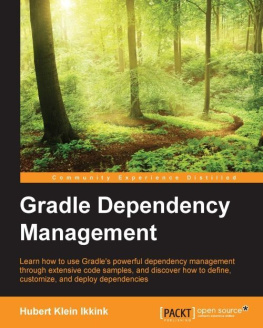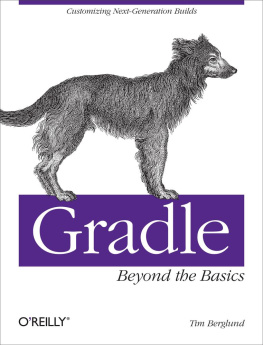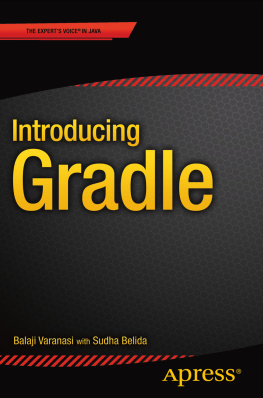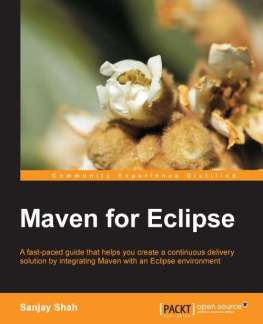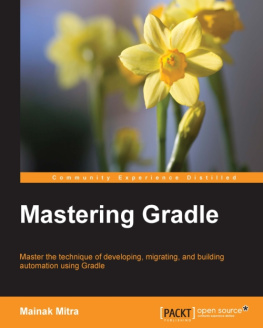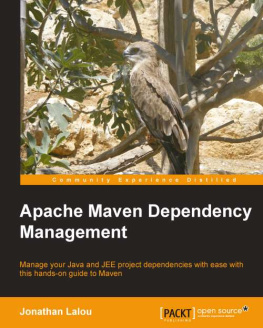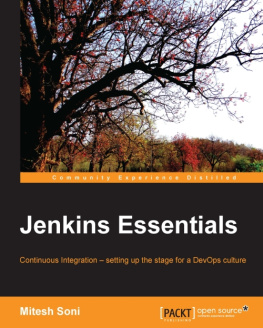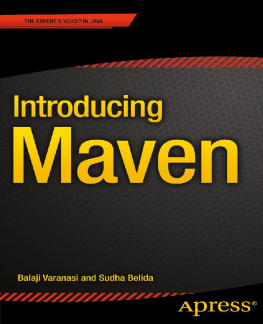Ikkink H.K. - Gradle Dependency Management
Here you can read online Ikkink H.K. - Gradle Dependency Management full text of the book (entire story) in english for free. Download pdf and epub, get meaning, cover and reviews about this ebook. genre: Computer. Description of the work, (preface) as well as reviews are available. Best literature library LitArk.com created for fans of good reading and offers a wide selection of genres:
Romance novel
Science fiction
Adventure
Detective
Science
History
Home and family
Prose
Art
Politics
Computer
Non-fiction
Religion
Business
Children
Humor
Choose a favorite category and find really read worthwhile books. Enjoy immersion in the world of imagination, feel the emotions of the characters or learn something new for yourself, make an fascinating discovery.
Gradle Dependency Management: summary, description and annotation
We offer to read an annotation, description, summary or preface (depends on what the author of the book "Gradle Dependency Management" wrote himself). If you haven't found the necessary information about the book — write in the comments, we will try to find it.
Gradle is the next generation in build automation. It allows you to define dependencies for your project in a clear way and also customize how they are resolved to suit your needs. It offers fine-grained control over how to publish your artifacts to Maven and Ivy repositories.Gradle Dependency Management defines dependencies for your Java-based project and customizes how they are resolved. You will learn how to configure the publication of artifacts to different repositories. Packed with plenty of code samples, you will understand how to define the repositories that contain dependencies. Following this, you will learn how to customize the dependency resolution process in Gradle.What You Will Learn:
Define dependencies in your Java projects;
Publish your artifacts to Maven and Ivy repositories;
Configure transitive dependencies;
Install your artifacts in Bintray;
Customize the resolution of dependency rules;
Use your own code as dependencies in a multimodule project;
Configure repositories to resolve dependencies.Be in total control of your dependencies.
Deploy your artifacts to repositories with Gradle.
Learn through code snippets and real-life examples.Who This Book Is For:
If you work on Java projects, use Gradle as a build automation tool, and you use dependencies in your project, this is the book for you. Additionally, if you want to deploy your project artifacts as dependencies for other developers using Gradle, youve found the right book. iPAD Amazon Kindle, PC , Cool Reader, Calibre, Adobe Digital Editions
Ikkink H.K.: author's other books
Who wrote Gradle Dependency Management? Find out the surname, the name of the author of the book and a list of all author's works by series.

